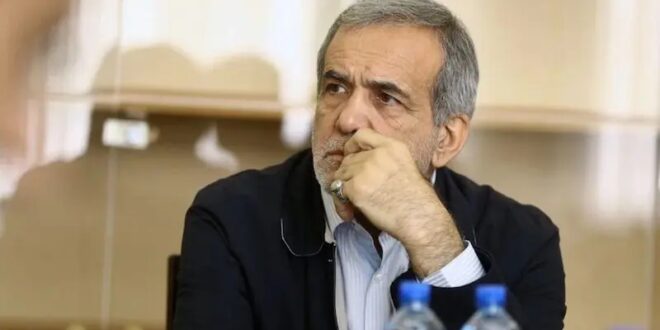Iran’s hard-liners controlled all levers of powers in the Islamic republic during Ebrahim Raisi’s presidency.
Despite Raisi’s death in a helicopter crash last month, hard-liners are expected to maintain their dominance as Iranians head to the polls to elect the ultraconservative president’s successor.
The powerful Guardians Council on June 9 approved six candidates to run in the June 28 vote. Five of them are hard-liners and conservatives. Only one is a reformist candidate.
“As expected, the Iranian regime is not willing to take any risks in the upcoming election and allow for a scenario that would potentially challenge the unified dominance of the hard-line and conservative camp over the government,” said Hamidreza Azizi, a fellow at the German Institute for International and Security Affairs.
Hard-liners have long dominated key bodies whose members are appointed directly by Supreme Leader Ayatollah Ali Khamenei. In 2020, hard-liners took control of parliament after the mass disqualification of moderate and reformist candidates. Their takeover was completed in 2021, when Raisi ran in what was seen as a one-horse race to become president.
Observers said the upcoming presidential election is likely to be a straight fight between two hard-liners: Parliament speaker Mohammad Baqer Qalibaf and Saeed Jalili, an ultraconservative former chief nuclear negotiator and Khamenei’s representative on the Supreme National Security Council.
“This is, once again, a highly engineered election,” Azizi said. “What the orchestrators of the election want to have is a managed competition among loyalists.”
The other hard-liners vying for the presidency are Tehran Mayor Alireza Zakani; Amir Hossein Qazizadeh Hashemi, a conservative deputy to Raisi; and Mostafa Purmohammadi, a hard-line former interior and justice minister.
The only reformist approved to run in the election was Masud Pezeshkian. The lawmaker and former health minister poses the least danger to the hard-liners, observers said.
Prominent moderates and reformists who had registered to run in the election, including ex-parliament speaker Ali Larijani and former First Vice President Eshaq Jahangiri, were disqualified.
Larijani and Jahangiri had “the potential, at least to some extent, to mobilize the population” and “become a headache for the regime,” said Azizi.
The absence of a relatively competitive field of candidates will hurt voter turnout, observers said.
The last three major elections in Iran witnessed record-low turnouts. The official turnout in the March parliamentary elections was around 41 percent, although critics claim the real number was even lower.
Experts have said the declining turnout signifies the growing chasm between the ruling clerics and Iran’s young population, many of whom are demanding greater social and political freedoms in the Middle Eastern nation of some 88 million.
“I doubt society is going to return to the ballot box, and I believe the trend of shunning the ballot box will continue,” Mohammad Mohebi, a political commentator and former academic based in Iran, told RFE/RL’s Radio Farda.
 Eurasia Press & News
Eurasia Press & News




